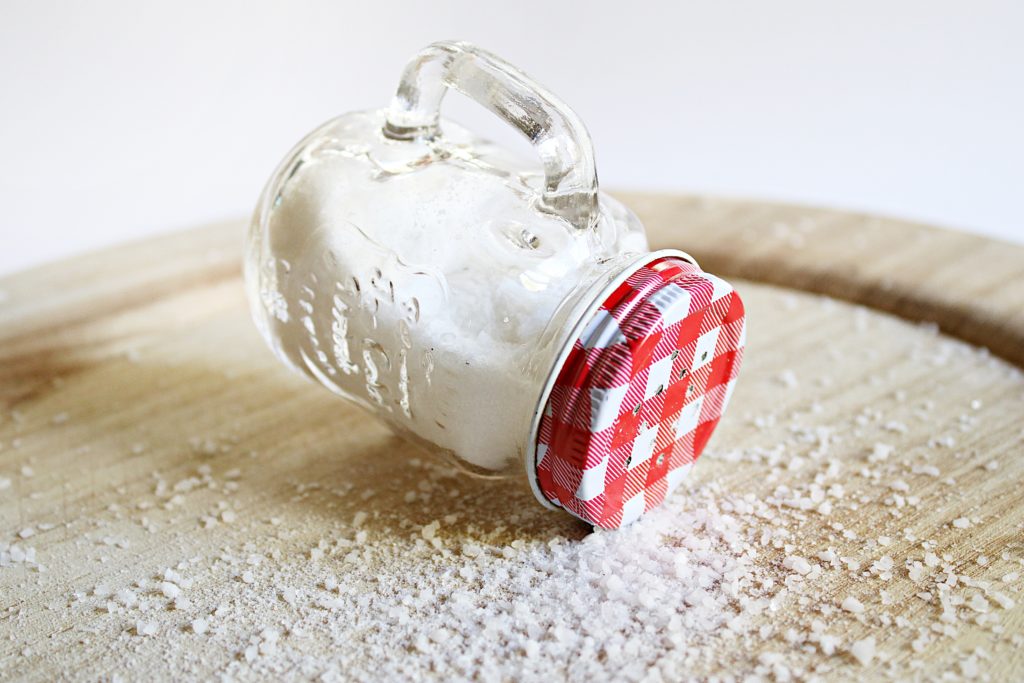
Why, when and how much salt you should add to the water before cooking pasta
Cooking pasta might seem super simple, and it is, but there are little things we can do to make sure our pasta tastes even better. Adding salt to the water before boiling the pasta is one of those little things.
In this article we are going to be looking at why you should add salt to the water before boiling pasta, when exactly you should add it, and how much salt is the right amount to add.
Why add salt to the water?
In general, when cooking, salt enhances the flavor of our food. That is why often we try our food, and if we feel it’s too bland we add salt to try to make it more tasty.
This is also true for pasta, and since our pasta will actually be absorbing some water when we boil it, if that water contains salt dissolved into it, our pasta will absolve it to.
You might be thinking that pasta itself (without any sauce) has no flavor, but it does, and allowing it to absorb that salty water (instead of plain water) will help bring that flavor out. This becomes even more apparent when cooking flavored pasta, like beet pasta, pumpkin pasta, calamari pasta, etc. or when pairing your pasta with very light sauces.
There is another reason why adding salt to the water in which we boil our pasta helps our pasta cook better. Salt water boils at a higher temperature. Ok, I’ll admit this is not a huge difference, specially when considering the small amounts of water and salt we use to boil water at home. But if we can make our dish 1% better, why wouldn’t we?
Unless you are trying a slow cook recipe, most foods preserve their taste and nutrients better if they are cooked fast. So if salty boiling water is hotter than fresh boiling water, our pasta will cook slightly faster in the salty option, therefore preserving more of it’s flavor, texture and nutrients.
How much salt to add?
Most Italian chefs recommend adding 10-15 grams per liter of water. That is around 2 tablespoons of salt per liter of water.
This is the part that, even people who are aware of the importance of adding salt to the water before boiling the pasta, get wrong. Most people add just a pinch of salt, as if they were seasoning the dish when it is already on the table. This is not enough to have the effect we are looking for.
See, if you are cooking soup, or a stew, or meat… everything you put into your pan will stay there (except for a small portion maybe, which might evaporate). That means if you add 1 tablespoon of salt to your soup, you will be eating 1 tablespoon of salt when you consume that soup. Makes sense right?
Well this is not the case when boiling pasta. We are adding the salt to the water in which we boil the pasta, most of which will be discarded when we strain the pasta. Most of the salt will go down the drain with the excess water. Only the salt in the small portion of water the pasta absorbed will make it to our dish.
Just to give you an idea of how salty the water in which you boil your pasta should be, think about this. In many Italian towns and cities located next to the sea, it is, or at least it traditionally was common for people to boil pasta directly in sea water!
When to add the salt to the water?
Now, this is another important thing to consider. Should we add the salt to the water as soon as we put our pot on the stove or should we wait?
The answer is we should wait until the water starts boiling before adding the salt.
The reason for this is because salt water takes longer to boil than fresh water. If we were to get into the chemistry of this we would find that there are a lot of variables involved, but as a rule of thumb we can say that salt water takes approximately 1 minute longer per liter to boil than fresh water.
When making pasta at home, your pot will usually contain 2-3 liters. If you add the salt before the water boils you will have to wait an additional 2-3 minutes before you can through your pasta in. No big deal. But if you are cooking for a family of four or five, you pot might contain 5-7 liters of water. Adding an extra 5-7 minutes to the preparation process, specially when talking about pasta, already starts to matter.
This really becomes important when cooking very big batches of pasta. Imagine making pasta at a school or a shelter, were you have to boil 100-120 liters of water. If you add the salt to it right away that pot will take over an hour longer to boil. That’s a lot of time!
On the other hand, if the water is already boiling when you add the salt, it will most likely continue boiling right away or will only take a minute to regain the temperature.
Conclusion
Pasta is a simple dish we can put together quickly, but that doesn’t mean we should pay attention to the details and make it taste as good as possible. Adding salt to the water in which you boil your pasta will help you achieve just that!
Wait until your water breaks to boil and be generous with the amount of salt you add to the water. You’ll notice the difference!

